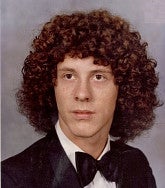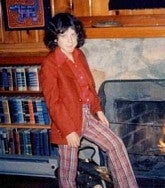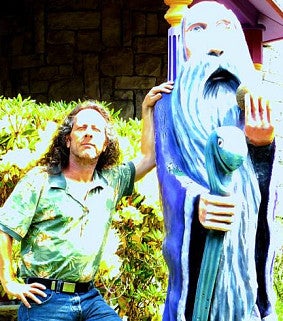What area do you work in within the VPFA portfolio?
CPFM Facilities Custodial Graveyard shift
What is your current position, and what are your job responsibilities?
I am a member of the graveyard custodial staff, which means we start at 10pm and are not done until 6:30am the next day. We are heading home before most people start arriving. Technically, I am a ‘floater’. When people are out for sickness, injury, or any reason—and there is a run that is not covered—I step in a cover that work. I am actually a regular member of staff because there is often someone out and even if we are fully staffed, there is always extra work for me to cover.
I was doing regular runs, or routes, for a while. When you get a run that you work regularly, you learn what you are doing and you get better at it. I worked at the Knight Library and the Education building for a while. In Education, they have outdoor-facing classrooms, which get quite dirty because people track in leaves and mud from the outside.
What do you like about your job?

There is always too much to do on any given run, but you learn the ways to do things faster and better and you learn the nuances of the run. Work is assigned based on square footage of the area, but we are responsible for the cubic area—all the area above the floor as well. It is really important to be aware of everything around you at all times. The job becomes very rhythmic when you figure out where you have to be and what you are doing. The workflow is all written down, but it takes some time to get into the flow.
This job is all about awareness and rhythm. I don’t listen to podcasts or music while I am working because I find I need to be aware of my surroundings at all times while I am working. In some of these old buildings, you can hear a lot of interesting things if you listen properly. It is almost like they talk in the night; you can tell a lot from these buildings. I have a mantra that I chant while I am working; I have a rhythm.
Summer can be a bit quieter because there are usually less people around. Sometimes we can get two runs done a night. This gives me more time to do things properly and get all the little details done that we’d like to get to in the school year but we don’t have time. Speed is really important during the school year—we are on a serious time budget because our runs are designed to take up every minute of our shift.
What has been your career path; how did you progress to your current position?
I have had a range of really interesting careers, and professional and laborer positions. I was in the military for a while; I ran nuclear reactors—that was my training. Another position had me swabbing the deck—I was a sailor.
I worked at a resort in Reno, Nevada for a while. I started out as a towel boy in timeshare condos that had cleaning service, and I worked my way up to head housekeeper. That job helped me learn the ins and outs of taking care of townhomes. I was one of the few native English speakers on the job but I managed to speak to the rest of the team. My mom grew up in Venezuela, so I had some Spanish in my background. My mom didn’t speak Spanish at home but my dad taught it at one point so it was in my family. I took it in high school and in college, and then I used it at this resort in Reno—that was where my Spanish really took off.
I worked in IT for about 25 years, starting with a telecom company in the late 80s that was using X.25 communication protocol (common in banking then) that I was already familiar with; on to a wholesale distribution as the MIS supervisor. Then 6 years with an AI company at the dawn of the World Wide Web era, doing development (company's websites and our online inference engine interface) and programming (translating the Windows code into the languages that other computers ran on, mostly). I was also an AI knowledge engineer that took the information gathered from experts and made it understandable by computers.
I also spent some time working in Miami Beach with the world’s largest non-English sports website as a systems admin in the early aughts (2000/1), during the dot.com bust. For 7 years I was the web technical developer for both campuses of St. John’s College.
My favorite job was running nightclubs. It was really entertaining and I have always been a bit of a night owl. Before this job, I was an assistant manager of a hotel. I liked the night audit part but found dealing with customers and managing their needs and issues very exhausting. This job suits me much better.
Please share some insight into what your job involves.
This job is about awareness, rhythm, and perspective.
You have to know the seasons because we are affected by the weather more than the average employees. We are up and about at difficult times of the day. People track the weather into buildings, so we are more aware of that.
Most carpets in institutional settings are designed to hide dirt. It is a blessing and a curse because as custodial staff, part of our job is to find the dirt in the patterns. You also have to be able to change your perspective and see things from many sides. You can walk down a hall and not see anything but the other way you do. You have to look up in corners and down into places that other people may not notice. You have to take in where you are from all sides.
Custodial staff have to be very attentive to what we have cleaned. For areas that are very busy—like the Knight Library—you have to pay attention to how you leave the chairs and keyboards. When you are done with a shift you check everything so you can tell if it has been disturbed. We have to be extremely attentive and have a keen spatial awareness.
Share a little about yourself personally:


- Childhood: I went to elementary school on an island on the Tropic of Cancer—Okinawa. It was small. I was there as it was returned to the Japanese. To be a kid there at 73 degrees average temperatures all year was wonderful. It was always summer and always pleasant. Granted, it wasn’t perfect—indoor plumbing existed, but was not common then for the average Okinawan.
- Food: I love the cuisine of New Mexico, Santa Fe. It’s a unique cuisine. There are mountainous isolated pockets of Spanish speakers that still speak Castilian Spanish, so there is a lot of original culture and food. I became very fond of chilies when I lived there. The state question is: red or green! I also like the cuisine of the Ryukyu Islands (a chain of islands to the southwest of Japan that include Okinawa). They have a lot of seafood and vegetables, and not a lot of meat. I really do like all kinds of cuisine and like just about any food from almost any place in the world: German food, teff bread from Ethiopia…I have eaten things I didn’t think I could eat but I did. Goat, for example, is really common in many places.
- Moving: I’ve moved over 50 times, including 2 years of high school in Seoul (Korea), Colombia, the Philippines, and all regions of the continental US except the Northeast.
(September 2022)

